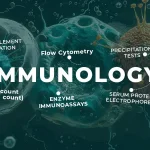Atypical haemolytic uraemic syndrome (aHUS) is a very rare and life-threatening kidney condition. aHUS is a sort of condition in which small blood clots block the tiny blood vessels in the kidneys. This causes damage to the kidney’s filters and affects their capability to work properly.
The condition occurs because of abnormalities in the complement system. Complement is a part of our immune system that is crucial in combating infection. It does this by covering both foreign cells (such as viruses and bacteria) and our body’s own cells (including kidney cells), with special proteins called C3 and C4. These proteins help the immune system detect and respond to threats.
The body kills bacteria and viruses by damaging their cell walls. Our cells are generally protected from these proteins by special “protector proteins. These protector proteins keep the system under control. In aHUS, there are faults in the complement system which means the ‘protector proteins’ don’t work properly. As a result, clots form within the blood vessels within the filters of the kidney causing anemia, a reduction in platelets (a type of blood cell), and kidney failure.
Causes of Atypical Haemolytic Uraemic Syndrome (aHUS):
- pregnancy
- a viral infection
- certain medicines
If this rare condition is not treated promptly, it can be life-threatening and will generally cause end-stage kidney failure.
How does aHUS Differ from Typical HUS?
Symptoms of Atypical Haemolytic Uraemic Syndrome (aHUS):
- fatigue
- weakness
- reduced urine output
- loss of appetite
- swelling in the body
Diagnosis of aHUS:
Treatment of Atypical Haemolytic Uraemic Syndrome (aHUS):
Other Therapeutic Options:
- dialysis for a short period (but some individuals may still need to remain on it in the longer term)
- plasma exchange – where faulty proteins that contain plasma are removed from the body and replaced with new non-faulty proteins that contain plasma. Plasma is basically the main ingredient of blood. This clear, straw-colored liquid holds platelets, RBCs, and WBCs in suspension. Plasma exchange, like dialysis, usually takes a few hours to complete. A line will need to be inserted into one of your larger blood vessels for the procedure to take place.
What is the availability of Soliris in India?
Soliris (Eculizumab) can be made available in India through trusted importers. It is primarily used to treat rare conditions like aHUS and PNH. Indian Pharma Network (IPN) is a trusted importer of Soliris, ensuring access to genuine medicine.
How can I buy Soliris online in India?
You can buy Soliris online in India through authorized suppliers like the Indian Pharma Network. Always buy this therapeutic drug from verified sources that comply with legal and medical regulations to avoid counterfeit products.
Is Soliris available in SAARC countries?
Yes, Soliris can be made available in SAARC countries, including India, Nepal, Bangladesh, Bhutan, Sri Lanka, Maldives, Afghanistan, and Pakistan. It can be accessed through trusted suppliers like Indian Pharma Network (IPN) for patients needing specialized care.
Who is an importer of Soliris in India?
Indian Pharma Network (IPN) is a leading importer of Soliris in India. We help patients readily access this life-saving therapeutic drug through a reliable and transparent process. We offer quick and safe delivery.
What is the price of Soliris (Eculizumab) in India?
The price of Soliris (eculizumab) in India varies depending on the dosage, brand, supplier, and treatment duration. It is a high-cost imported medicine. Kindly Call/WhatsApp: +91 9310090915 to consult with us for competitive pricing and assistance programs.






